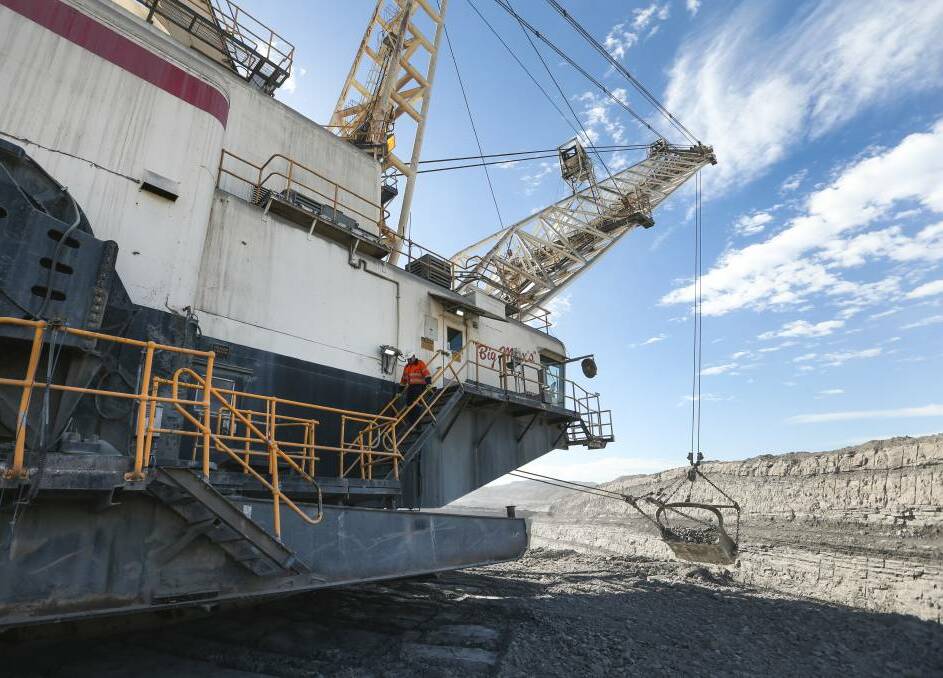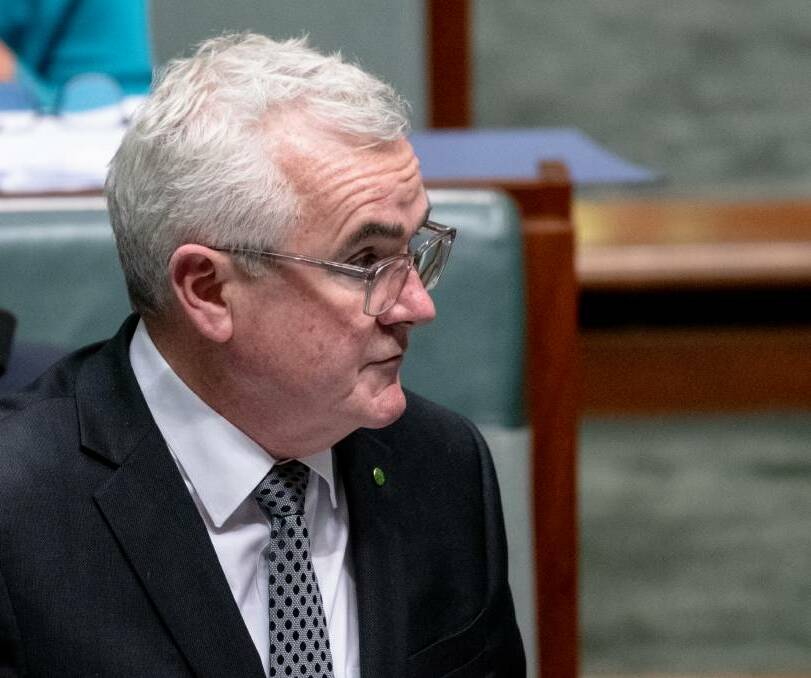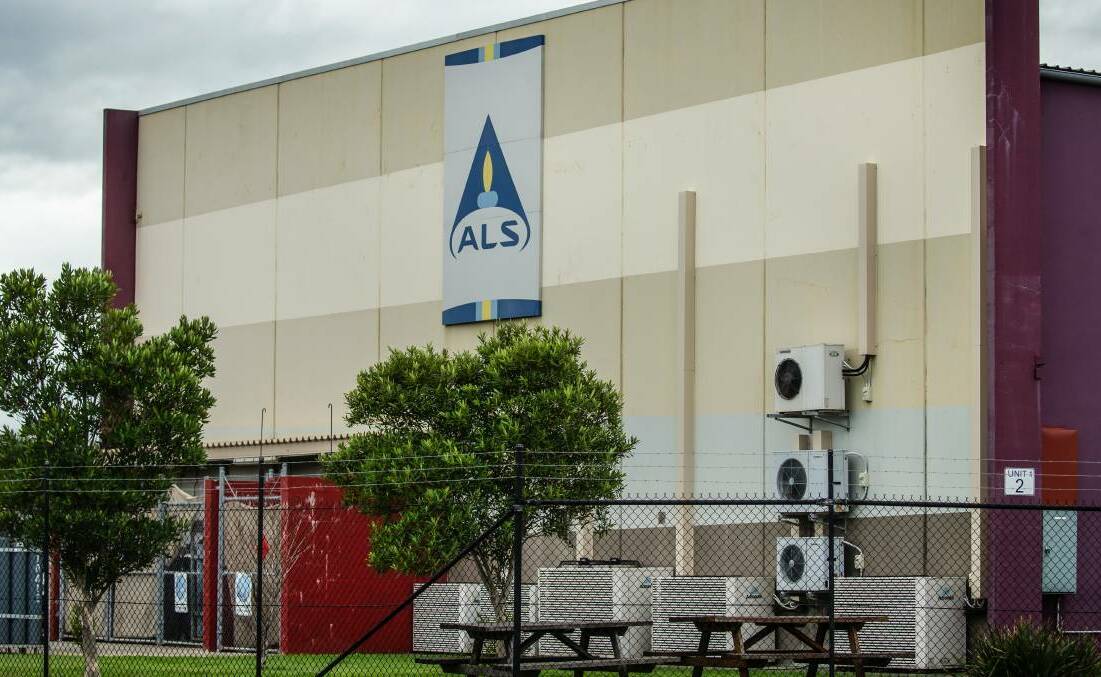
"IT'S a dirty business and I have no idea how anyone thinks they can clean it up."
That's the opinion of a Hunter-based former lab worker who got the sack for manipulating coal-export test results.
Now retired after working decades in the coal industry, he says the public would be shocked to know the extent of "corruption" and "fraud" that has gone on for "time in memoriam".
"It was always about keeping the customer happy and not getting caught," he says.
"I was told on my first day in the job, this is how it operates. I was horrified to begin with, but you either get on board or you get out the door, and I had a mortgage and kids."
He recalls how the lab he worked for kept "two sets of books".
One detailing legitimate coal test results and another with the slightly altered data that was used on export certificates to certify the inflated quality of coal being shipped from the Port of Newcastle.
The "tweaks" were made at the request of miners or coal marketers so the coal appeared to generate more energy, making it more valuable.
"If you certify a cargo with 9 per cent moisture when it's actually 10 per cent it makes a lot of difference," he explains.
"One per cent difference on a 100,000 tonne cargo means the buyer is paying for extra coal when they are actually getting water."
Labs can also adjust the ash and sulphur content of coal and energy value.
The incentive for miners can be "upwards of $100,000 or more" per shipment and for labs it is a "steady stream" of repeat business.
Port Waratah Coal Services loaded 111.3 million tonnes of coal onto 1279 ships in Newcastle last year, its second-biggest year ever.
According to the Australian Bureau of Statistics, Australia exported $109.7 billion of coal last financial year off the back of a global energy shortage, up 180 per cent on the previous year.
But a fierce political cyclone is hanging over the Australian export coal industry, after the government asked this week for an Australian Securities and Investments Commission (ASIC) briefing following accusations Hunter mine operators Glencore and Peabody used falsified coal test results to boost profits and bribed overseas customer representatives to cover it up.
Independent MP Andrew Wilkie dropped a bomb on Monday, using a speech in Parliament to call for "at least" a federal parliamentary inquiry into the industry's testing practices.
He said a senior coal industry executive had provided him with thousands of documents which "prove Australian companies have been lying for years about the quality of our coal".
Mr Wilkie named Glencore, which operates nine Hunter mines, and Peabody, which owns Wambo colliery near Singleton, Anglo American, TerraCom, Macquarie bank, auditors Ernst&Young and testing firms ALS and SGS among industry players implicated in the scandal.
He said in a later media conference that employees at the firms were "knowingly involved" in "widespread fraud" to inflate the quality and value of coal shipments.
Insiders told the Newcastle Herald that altering coal test results had been an "open secret" in the Hunter for decades.
A former Hunter lab manager says if a public inquiry was held the coal industry would be scoured of a deep-seated problem that had plagued it for "too long".
He says if no inquiry eventuates, it will be business as usual.
"We're talking about small changes that can make massive differences to the mines profitability, but it's all based on lies and bullshit," he says.
"If the government does nothing they are giving the green light for this to continue and for Australia's coal reputation to have a cloud hanging over it forever.
"There is a lot more to this than just some minor adjustments in some lab tests. This whole mess publicly documents how parts of the Australian coal industry operates. It isn't pretty."
Exports out of Newcastle will likely finish this year at least 10 per cent down on 2021, but the industry says the drop-off is purely the result of weather-related disruptions.
Coal companies are reaping record profits with Hunter steaming coal sitting at $US426 a tonne on Thursday, or 8.5 times the $US50 of two years ago.
In 2020, testing giant ALS called in police to investigate its Newcastle lab after revelations it faked results. ASIC investigated but took no action, even though the firm admitted up to half its tests had been doctored over 13 years. An independent forensic investigation, carried out by McGrathNicol, found approximately 45 to 50 per cent of coal tests were "manually amended" at ALS testing facilities in Newcastle and Mackay to make it appear the coal was better quality.
At the time, the ALS coal superintending unit processed more than 39,000 samples for shipping analysis, which equated to about 3000 certificates each year, or 40 per cent of the Australian market for testing coal samples.
ALS suspended four senior staff, including three based in Newcastle, after the fake tests came to light. All four left the company soon after. Two took jobs with coal companies based in the Hunter.
In Parliament on Monday, Mr Wilkie labelled the fake testing scandal "fraud", possibly "criminal" and "environmental vandalism", effectively making our goal of net zero by 2050 a "fiction".
Teal MPs are backing his call for an inquiry into an alleged scam.

A spokesperson for Resources Minister Madeleine King described the accusations as "concerning" and said the government had sought briefings from ASIC and the Department of Industry.
Another lab insider says there are several ways changes can be made to test results to inflate the quality of coal in order to maximise profits.
He explains there is room to move the data due to "reproducibility", which is the allowable differences between samples at different labs, which is much larger than "repeatability", or the allowable difference between samples at the same lab. It's understood some labs also use "off books" systems of "compound errors" to change results. This involves making changes to data such as net calorific value, which indicates how much energy coal throws off when it is burned for power generation.
The moisture content in coal helps determine calorific value. If the total moisture reading is lowered, this improves the calorific value and makes the coal more valuable.
"By doing a range of different things, that might seem small, you can shift things around quite a lot and those changes mean big dollars," he says.
Mr Wilkie said he has evidence SGS faked tests at a similar rate to ALS.
He tabled an SGS report which he said showed a coal sample with a moisture content of 16.7 per cent, "which is pretty damp and won't burn well", which was changed to 15.9 per cent in the final version.
The issue first came to light in 2020 when the Australian Financial Review reported allegations in an unfair dismissal case that Australian miner TerraCom had worked with ALS to falsely upgrade the quality of its coal in export documentation.
The claim came in a lawsuit from former TerraCom commercial manager Justin Williams.
He alleged TerraCom had sacked him for refusing to engage in having ALS's laboratories tweak analysis results. Changing the results would help TerraCom coal pass contract specifications, he alleged. TerraCom denied the allegations and the case was discontinued in September 2020.
A Hunter coal insider says repeated claims of fake testing are damaging the reputation of the whole industry, when not all miners are involved.

He says there has always been rumours of shady backroom deals, labs being pressured to comply, parameters pushed "way beyond" allowable limits and threats made that labs will lose contracts.
The claims are "nothing new" for people working in the industry, nor are they particularly unique to coal.
"We have all heard these things, it's widespread knowledge that some push the boundaries," he says. "It's the dark side and there is a particular miner that has a reputation for it and I'm sure that company is praying this just all blows over like it has in the past so they can just get back to what they do."
A Peabody spokesperson said the company "strongly denies" Mr Wilkie's claims. An Ernst&Young spokesperson said the firm would not comment on matters relating to clients.
Glencore said it had not been investigated for falsifying coal test results. "We strongly reject any claim of Glencore involvement in these matters. Glencore has a clear Code of Conduct which sets out the key principles and expectations for all of our employees."
Do you know more? Donna.page@newcastleherald.com.au
WHAT DO YOU THINK? We've made it a whole lot easier for you to have your say. Our new comment platform requires only one log-in to access articles and to join the discussion on the Newcastle Herald website. Find out how to register so you can enjoy civil, friendly and engaging discussions. Sign up for a subscription here.







